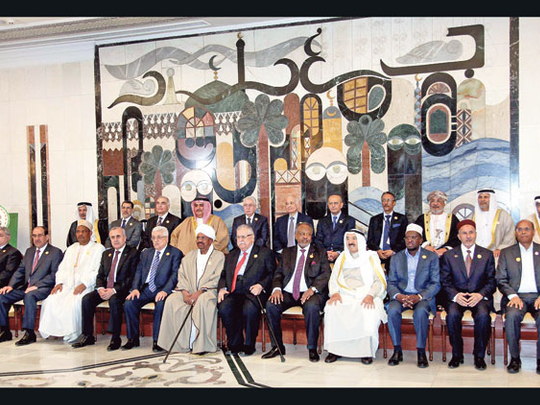
While in Delhi last week, I attended the Asian Security Conference 2013, organised by the Institute for Defence Studies and Analysis (IDSA), where India’s top military and political elites were trying to assess the emerging trends in ‘West Asia’ (the Gulf and the wider Middle East). The two-year-old Arab Spring and its global and regional implication was the central topic of the conference. However, as India grows as a global economic power and its dependence on West Asia’s oil deepens, the real issue is India’s latest obsession with oil security and how to balance Delhi’s conflicting relationship with Iran and the Arab Gulf states. It was disappointing to see that a historically rich and culturally diverse Gulf-India relationship is reduced to mere economics, business, remittances and oil issues. The view of the Gulf among the old and young strategic elites at IDSA, Delhi’s most prestigious think tank, is a copy-paste of the western approach, which made so many misses in its analysis and understanding of this vital region of the world. Not a shred of new thinking came out of the three days of deliberations.
It is amply clear that the economic leg of the Gulf-India relationship is strong and as healthy as ever. The statistics are impressive and confirm that the economic ties will continue. However, one major concern for Gulf investors has to do with the incredibly tedious and corrupt Indian bureaucracy, which is proving to be a real threat — not only to foreign investors, but to India’s aspirations as well to reach the next level as a global power. Gulf, and especially UAE investors, are frustrated and ready to give up on the lucrative Indian market if their legitimate concern is not addressed squarely.
Nevertheless, the economic leg of Gulf-India relationship remains as good as it can be. The political leg is not as strong and promising though. There are myriads of concerns that need deep thinking and fresh approach. In my 15 minutes of intervention, presenting the Gulf perspective, I had to remind my Indian colleagues of the following concerns:
The first major issue has to do with Gulf security. India and the rest of the world are attracted to the Gulf primarily for its oil. They all need Gulf oil, but India and the other Asian economic powers need it the most. However, if the world is so desperate for affordable oil, the vulnerable Arab Gulf states are willing to trade it for security assurances. They produce plenty of oil, but they shop for security. They live in a tense zone next to tough and expansionist neighbours. The question is what role does India want to play in Gulf security? How does it intend to contribute to regional stability? Unfortunately, India remains deliberately ambiguous on the elusive formula for Gulf security. This ambiguity is not fitting of a future power.
The second concern is dealing with Iran and more specifically nuclear Iran. The six Arab Gulf states view Iran as a destabilising force that needs to be confronted. It seems that India does not share this perspective and is hesitant to see Iran as a destabilising force. It does not want to recognise that Iran is not only militarising, but dangerously nuclearising the Gulf. The Arab Gulf states expect India to reconsider its soft approach towards Iran and be more forthcoming on the UN economic sanctions. This wishy-washy India does not make for a credible partner in the post-America world.
The third area of concern is that India is literally repeating western mistakes in the region. It is so obsessed with oil that it sees nothing in the Gulf but oil. All that interests the newly-awakened India is oil and gas. India needs to be reminded that there is more to the Gulf than oil. It can utilise its close proximity and rich association to come up with a more holistic approach to the region. The real challenge for the growing number of Indian Gulf specialists is to come up with a distinctly non-oil paradigm to Gulf realities.
Finally, there is India’s growing strategic relation with Israel which is watched very closely by the Arab Gulf states with a great deal of alarm. The old idealistic India cared for the Palestinians and provided them with the needed political shelter and moral support. The new capitalist India no longer cares for Palestine and hardly condemns the continuing brutal Israeli occupation. Justice for the Palestinians, which used to be a top political priority, is no longer an issue. At a time when India needs Gulf oil the most, it has decided to go too far in its strategic relationship with Israel. Not a very wise choice for once-principled India that seems to have lost its soul as it pursues superpower status.
I was asked by the organisers to be candid and generous in my comments about the political leg of the Gulf-India relationship. I think I was more blunt than frank. However, to my surprise, the reaction was mostly friendly and positive. After all, I was among the friends and cared the most for further deepening the rich and diversified Gulf-India ties.
Dr Abdulkhaleq Abdulla is a professor of political science. You can follow him on Twitter at www.twitter.com/Abdulkhaleq_UAE












